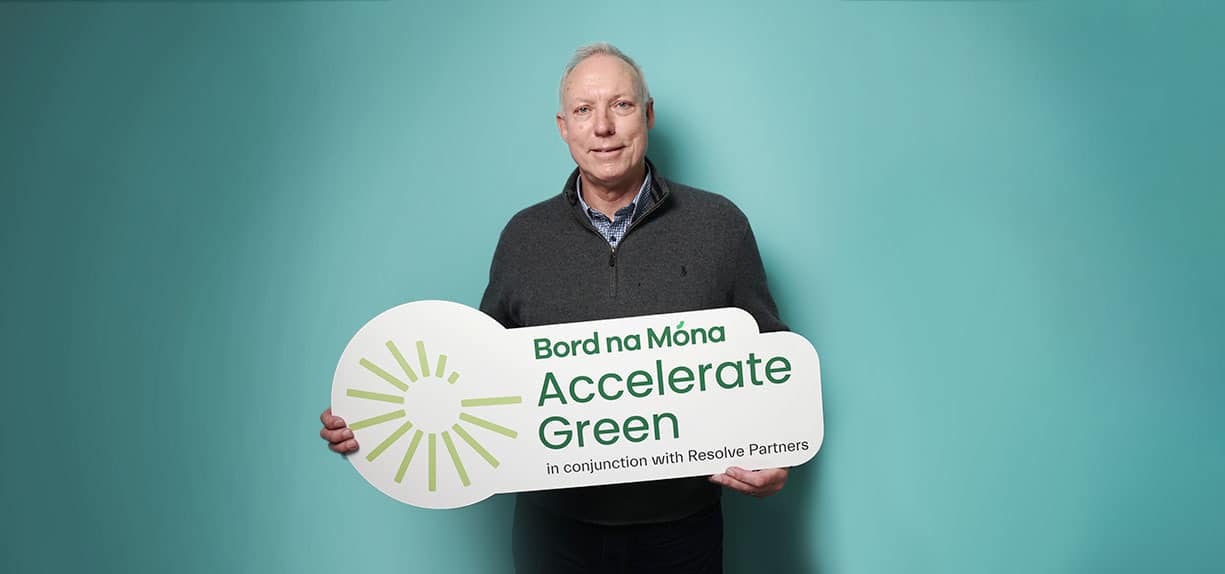Pictured: John Favier, CEO, NanobOx
John Favier is CEO of NanobOx a water treatment technology company that uses nanobubbles to increase productivity and sustainablity in the bio-industries.
We are inspired by the huge potential of our highly innovative technology to increase the productivity and sustainability of a wide range of bio-industries.
What inspired you to start your company?
We are inspired by the huge potential of our highly innovative technology to increase the productivity and sustainability of a wide range of bio-industries. My co-founder, Dr Mohammad Ghaani, and I founded NanobOx to commercialise a ground-breaking invention that reduces, by an order of magnitude, the energy cost of adding gases to water. We are focussed on adding oxygen to water: a key process in the bio-economy.
What is your core product/service offering and what gap in the market are you trying to address?
NanobOx is bringing to market highly energy efficient and scalable water aeration technology that substantially increases yield and reduces energy costs in agriculture, aquaculture, water and wastewater treatment and more. It uniquely generates highly oxygen-enriched nano-sized bubbles in water from ambient air that maintain oxygen levels in water for much longer, and at much less energy cost, than conventional methods of aeration. They can also be used for cleaning, sanitising and purification of water and water handling equipment.
Water aeration consumes about 2% of global electricity production, and equipment for aerating and oxygenating water is a multi-billion-dollar market.
We will reduce the energy cost of aeration in aquaculture as well as increasing productivity through improved feed conversion and fish health. These benefits translate to a reduction in carbon emissions and use of environmentally harmful chemicals.
Is there a particular sustainability related issue that your business is trying to solve?
We help improve our customers’ economic sustainability by increasing their productivity and profitability, as well as their environmental sustainability by reducing their carbon footprint and environmental impact. We aim to increase yield and reduce input costs in irrigated crop production, while also reducing the energy cost and enhancing the performance of agricultural wastewater treatment.
We will reduce the energy cost of aeration in aquaculture as well as increasing productivity through improved feed conversion and fish health. These benefits translate to a reduction in carbon emissions and use of environmentally harmful chemicals.
What motivated you to apply to the Accelerate Green programme?
The Accelerate Green programme is a business accelerator that is oriented to helping develop the sustainability and climate solutions dimension of scalable businesses. It also offered us the opportunity to network and build our business profile.
We have also had frequent engagements with Bord na Móna senior management who are leaders in developing and promoting renewable energy and sustainable business in Ireland.
This has given us an appreciation of the value we bring, not only to our customers, but also to the environment.
We aim to be an international business exporting from our manufacturing base in Ireland, so will need a mixture of technical and commercial staff engaging with clients and partners worldwide.
How important is professional networking for you as you grow your business?
Networking is very important for us in terms of attracting investment, promoting our value proposition, finding business partners and customers, and recruiting staff. All are important, but I think the value of networking in attracting talented people to join our team will have the most value for us going forward.
We aim to be an international business exporting from our manufacturing base in Ireland, so will need a mixture of technical and commercial staff who are willing to engage with clients and partners worldwide.
In biological wastewater treatment, expanding beyond agriculture and aquaculture to municipal and industrial applications, we anticipate being able to develop solutions in Ireland that can be exported worldwide.
What is the biggest challenge you have faced since starting your company?
Our biggest challenge has been securing investment when our business is pre-revenue. There are many potential applications for our technology and security further equity investment and grant funding to allow us to make the most of these opportunities is an ongoing challenge.
We are running field trials in Ireland and in Europe in irrigated horticulture and inland aquaculture to demonstrate the value we can bring for early-adopter customers in these initial markets.
We are getting a lot of interest in using our nanobubble technology for chemical-free cleaning and sanitisation in crop production, animal husbandry and post-harvest handling of fresh produce.
We are also working with strategic partners here and internationally to develop innovative solutions for agricultural water desalination. In biological wastewater treatment, expanding beyond agriculture and aquaculture to municipal and industrial applications, we anticipate being able to develop solutions in Ireland that can be exported worldwide.
READ MORE
“We now have no time on our hands” – In conversation with Professor Sir David King



